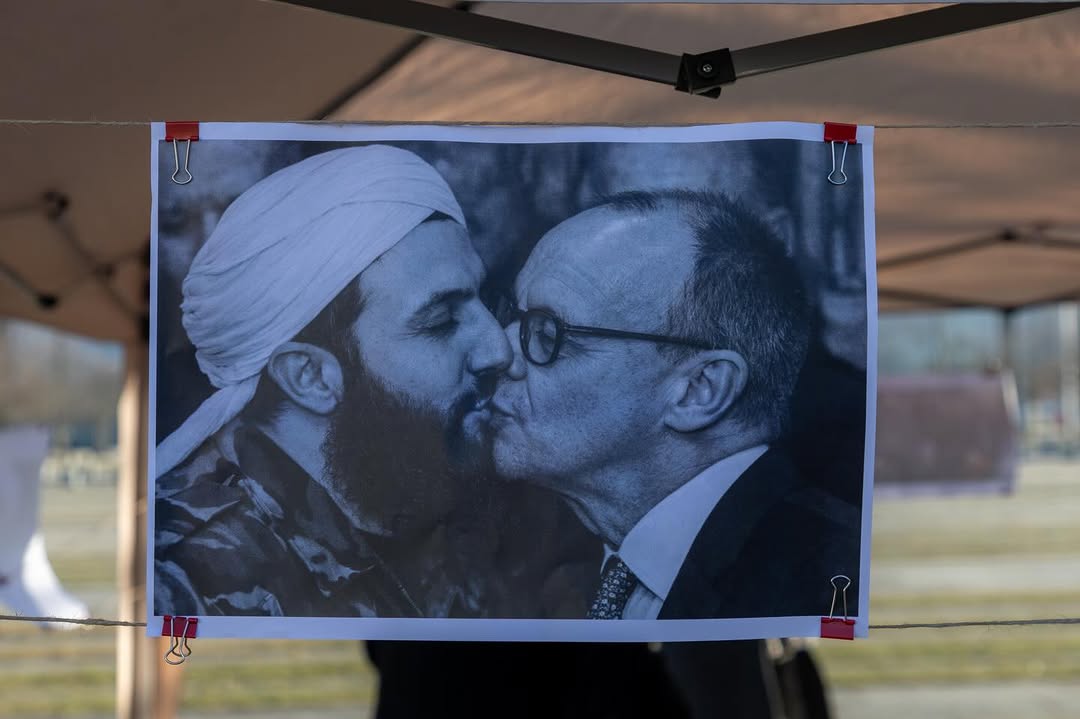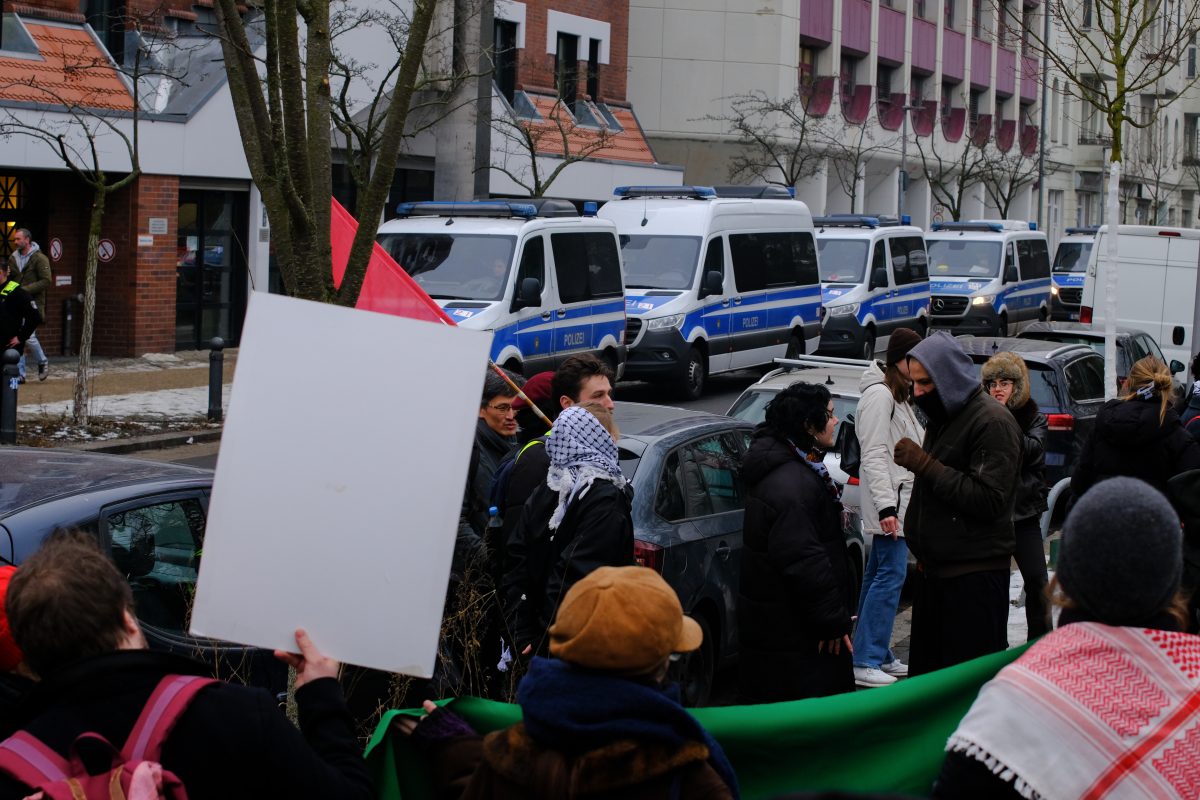The Question of German Guilt
The Holocaust against the Jews of Europe is internationally recognized as a modern genocide that changed the world. It is a universal moral paradigm in democratic societies and its remembrance continues to have a significant impact on world politics and international law. The importance of remembering and “working through” the Holocaust is, of course, particularly acute in contemporary Germany. Here the historical responsibility and “a primal scene of guilt and shame” for the crimes committed against the Jews by the National-Socialist regime have become the core around which German national identifications are organized. Indeed, in the book “The Question of German Guilt” published two years after the end of the war, German psychologist Karl Jaspers maintained that:
“We Germans are indeed obliged without exception to understand clearly the question of our guilt…The way we answer it will be decisive for our present approach to the world and to ourselves. What comes out of it has to create the essential basis of what will in future be the German soul and the fundamental trait of our German self-consciousness”.
German foreign policy officials were acutely conscious that “the world will carefully watch the new Germany and one of the tests by which it will be judged and allowed reintegration into the ranks of “civilized nations” will be its attitude towards the Jews and how it treats them”. “Stigma management”, then, became Germany’s main occupation, leading to what Nolte has referred to as a “theatre of remembrance”. In which the memory of the Holocaust became reified into a “ritualized narrative”. It became both totemic and taboo- and turned into a political function of legitimacy, authority and social transformation.
According to Sznaider, one of the primary attempts to embody and attain a “proper” attitude towards Jews has been Germany’s official policy of defending the legitimacy of the state of Israel. This entity became officially recognized as the legitimate representative of all Jews. Inspired by a compelling moral obligation as well as to wishing to “bring Germany out of the Ghetto completely and forever”, Konrad Adenuaer, first chancellor of the Federal Republic of West Germany) insisted on establishing a treaty of reparations with Israel. This culminated in the Luxembourg Agreement (1952) in which the Federal Republic promised to pay the state of Israel 3 billion German marks in commodities and services, including reparations, loans, gifts, technical services, trained personnel and even military aid .
After German unification in 1990, an attempt to forge a positive national identity on the basis of “non-negotiable” support for the security and the “right to exist” of the state of Israel was made. This was a commitment that according to Dochartaigh has no parallel, remained an important aspect of the official German solution to history. In 2008, Federal Chancellor Angela Merkel declared the “safety of Israel” as part of Germany’s raison d’état before the Knesset on the occasion of Israel’s 60th birthday. On Palestine, official German voices were silent.
Disavowal and the Externalization of Anti-Semitism
Apart from the violence and oppression inherent in forms of silencing and disremembering, the problem with disavowed or “not properly dealt with” histories, is that they can become lethal in new ways and in new spaces. This constitutes what Derrida has referred to as a “haunting” in which unspoken memories function as ghosts that can suddenly (re-)surface, leading to the past’s uncanny interruption in the present.
Indeed, in Germany, the positioning of the Shoah as the standard for what should never happen again, leads not solely to a refusal to properly address the past. It also leads to a refusal to address and acknowledge contemporary forms of violent exclusio one of which is the normalization of Islamophobic attitudes in the name of fighting anti-Semitism. The mechanisms described above allow Germany to depict itself as a “new and revitalized country”, a Germany that has fully liberated itself from any racist and anti-democratic tendencies that survived from its Nazi past. Indeed, Holocaust commemoration and the fight against those hidden aspects now regard as outmoded, disgraceful and therefore shameful, are transformed into an element of “German pride”. The former shameful aspects of German identity are displaced, projected and exteriorized outside the German body. Now “tolerance” is ethnicized as a uniquely German civilizational attribute, driving a wedge between a “revitalized, redeemed, color-blind, post-racial” Germany and its Other. That is the immigrant, minority and particularly Muslim populations who have not yet come to terms with their supposed inherent anti-Semitic attitudes anchored in geopolitical conflict. Ozyurek notes how a public discourse now dominates in Germany on the Muslim “importation” of anti-Semitism into Germany which has “come to terms with its own anti-Semitism”. In the current German history and identity, the haunting of Europe’s silent racializations continues to place ‘Others’ outside limits of the new, inclusive community. Similar to the workings of “homonationalism” and “femonationalism”, in which the alleged sexual freedom of queers and women is juxtaposed to the alleged oppression of these groups among the Muslim Other, anti-Semitism has become a convenient way of projecting blame onto the “Muslim Other” for complex social issues that might blemish the mainstream’s self-image.
As a classic form of psychoanalytic disavowal, the charge of anti-Semitism becomes a strong projection of the history of violent exclusion and racism onto the bodies of “outsiders” – “I accuse you of doing what I am afraid I might be doing myself”- generating an environment in which Germans obsessively scrutinize and censure other alleged bearers of the inheritance they wish to obliterate, demanding a continuous proliferation of technologies for evaluating deviations from and perversions of it. The development of instruments of surveillance –increasingly targeting very specific groups of people– for securing compliance with the order of obedience to hegemonic memory, then, is one way in which the past becomes “lethal” in new ways and in new places.
Political Censorship
According to an anonymous academic in Germany, who wished to remain anonymous for exactly these reasons, a disciplinary communications apparatus now exists in Germany, in which the accusation of anti-Semitism places everyone, particularly those critical of Israeli policies, under general suspicion and in which there is a system of punishment for those who try to divert from hegemonic narrations. In fulfilling the fight against the harrowing inheritance of antisemitism and the construction of instruments securing compliance with the “ritualized narrative” of the Holocaust, a new political framework was gradually created step by step in Germany between 2017 and 2020. In 2017, the German federal government adopted a new extended definition of anti-Semitism, in which anti-Zionism, and thus criticism of Israel, became equated with anti-Semitism. The definition reads:
“Antisemitism is a certain perception of Jews that can express itself as hatred towards Jews. Antisemitism is directed in word and deed against Jewish or non-Jewish individuals and/or their property, as well as against Jewish community and religious institutions. Manifestations of antisemitism can also be directed against the State of Israel”.
In January 2018, the post of Federal Commissioner of anti-Semitism was established after which thirteen federal states followed with the appointment of their own antisemitism commissioners. Meanwhile, the growing and considerably larger number of Islamophobic and other non-anti-Semitics hate-crimes continued to receive no specific attention. In May 2019, the German Bundestag passed a BDS resolution with the objective of “resolutely opposing the Boycott, Divestment, and Sanctions movement (BDS) in the fight against anti- Semitism”. Without providing any evidence, the resolution declared that “the model of argumentation and the methods of the BDS movement are anti-Semitic”). Bot, a German legal scholar, argues that the strategy to suppress BDS campaigns by means of the law exemplifies an instrumentalization of law that is fundamentally at odds with the rule of law and should therefore be critically scrutinized.
Anamnestic Solidarity in Berlin
One place where one can witness productive attempts to construct a counter-public of memory between Israelis and Palestinians is Berlin, where activists, despite the restraining impulses of German official policy and discourse, have organized to exert collective force to create conditions for transformation and emancipation. It is profoundly ironic that these initiatives are taking place in Berlin, the former seat of Nazi power and in many ways the place to which the Israeli-Palestinian conflict traces its violent origins.
Berlin is known as Germany’s most multicultural city, in which the vibrant and lively boroughs of Kreuzberg and Neukölln in particular constitute popular hubs for young artists and intellectuals around the world. Berlin is home to the largest Palestinian community in Europe and the neighborhoods of Kreuzberg and Neukölln have often been referred to by Palestinians as “the biggest ‘Palestinian Refugee Camps’ outside of the Middle East”. Berlin also houses one of Europe’s largest Israeli diaspora communities, mostly consisting of young, creative and politically left-leaning individuals for whom the progressive climate in Berlin is highly appealing.
Atshan & Galor illustrate that, while official German state discourse has demonstrated a commitment to Israel and largely excluded Palestinians, German actors at the individual and grassroots level in Berlin seem to be a lot more critical and are increasingly acknowledging the importance of Palestinian narratives and experiences. Indeed, at the intersection of the German government and Berlin’s civil society, there are a number of organizations, movements, and activist groups that are directly concerned with the Israeli-Palestinian conflict. Additionally, a committed community of Israelis has developed in Berlin who are critical of their government and who have levered their voices in a number of activist groups to engage Palestinian partners and advocate for Israeli-Palestinian solidarity. Because of physical segregation, these kinds of engagements are largely untenable in Israel-Palestine, while they become real opportunities for peace and co-existence in places where the physical divides are broken down. In Berlin, then, there is a movement towards mutual recognition among Germans, Israelis and Palestinian, ultimately leading to a more nuanced public discourse and more multidirectional, rather than competitive deliberations, allowing Palestinians to demonstrate that they are not just so many of a million refugees living in Germany, but that are there because they have a past that is inherently rooted in a largely disavowed part of German history. In this way, remembrance can be an act of hope, a moral act of redemption and a struggle for justice and decolonization.
Further reading
-
Abu-Lughod, L.; A.H Sa’Di. 2007. Nakba: Palestine, 1948, and the Claims of Memory. New York: Columbia University Press.
-
Atshan, S and K. Galor. 2020. The moral triangle: Germans, Israelis, Palestinians. London: Duke University Press.
-
Bashir, B and A. Goldberg. 2019. The Holocaust and the Nakba: A New Grammar of Trauma and History. New York: Columbia University Press.
-
Nur-Masala, N. 2012. The Palestinian Nakba: Decolonizing History, Narrating the Subaltern, Reclaiming Memory. London: Zed Books.
-
Said, E. 1979. The Question of Palestine. New York: Vintage Books.
-
Rothberg, M. 2009. Multidirectional Memory: Remembering the Holocaust in the age of Decolonization. Stanford: Stanford University Press.




